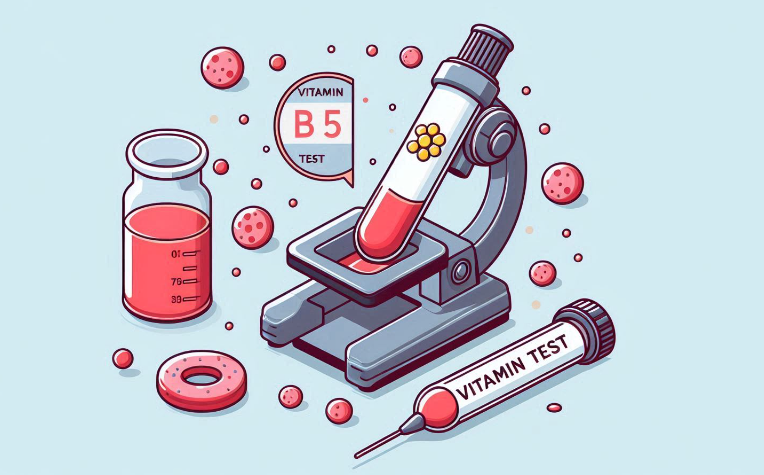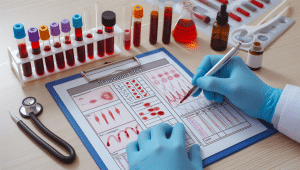What is Vitamin B5 Test?
A Vitamin B5 Test, also referred to as a Pantothenic Acid Test, measures the level of pantothenic acid (Vitamin B5) in your blood. Vitamin B5 is a water-soluble vitamin crucial for various bodily functions, including energy production, hormone synthesis, and maintaining healthy skin, hair, and the nervous system.
Why Do You Need a Vitamin B5 Test/Pantothenic Acid Test?
Although rare, this test might be ordered if a healthcare professional suspects:
- Pantothenic acid deficiency: Symptoms like fatigue, numbness or tingling in the hands and feet, muscle cramps, irritability, and sleep disturbances can suggest a deficiency.
- Monitoring high-dose pantothenic acid therapy: Individuals taking large amounts of pantothenic acid supplements may need regular monitoring.
- Assessing certain medical conditions: Malabsorption disorders or conditions affecting nutrient absorption might warrant this test.
What Does a Vitamin B5 Test/Pantothenic Acid Test Measure?
The test directly measures the concentration of pantothenic acid in your blood serum. It can indirectly indicate:
- Vitamin B5 status: Whether you have sufficient, deficient, or excessive levels of Vitamin B5.
- Potential health risks: Although rare, pantothenic acid deficiency can lead to various health problems.
- Underlying conditions: Abnormal levels might signal malabsorption issues or other health concerns.
Preparing for the Test
Generally, no special preparation is needed for a Vitamin B5 test. However:
- Fasting: Some labs might require fasting for a few hours before the blood test, so confirm with your healthcare provider beforehand.
- Medications: Inform your doctor about any medications or supplements you’re taking, as some can interfere with the test results.
Understanding the Results
Normal pantothenic acid levels typically range between 500-2000 ng/mL in blood. The interpretation can vary slightly depending on the laboratory and other individual factors.
- Low levels (deficiency): While uncommon, deficiency can lead to symptoms like fatigue, numbness, muscle cramps, and other complications.
- High levels: Excess pantothenic acid is generally excreted in urine and rarely causes problems.
- Normal levels: Indicate adequate pantothenic acid status.
Risk Factors and Prevention
Factors that can increase the risk of pantothenic acid deficiency include:
- Poor diet: Diets lacking in pantothenic acid-rich foods like meat, whole grains, legumes, vegetables, and eggs might lead to deficiency.
- Malabsorption disorders: Conditions affecting nutrient absorption can impact pantothenic acid levels.
- Alcoholism: Chronic alcohol abuse can interfere with the absorption and utilization of various B vitamins, including pantothenic acid.
Prevention and management focus on:
- Balanced diet: Include plenty of pantothenic acid-rich foods in your diet.
- Supplementation: If dietary intake is insufficient, your doctor may recommend pantothenic acid supplements.
- Addressing underlying conditions: Treating any conditions causing malabsorption or affecting nutrient uptake is important.
- Limiting alcohol intake: Moderation or abstinence from alcohol supports adequate pantothenic acid levels.
Remember, maintaining optimal pantothenic acid levels is part of a healthy lifestyle. If you suspect any deficiency or have risk factors, consult with your healthcare provider for further evaluation and guidance.

 7351982473
7351982473











